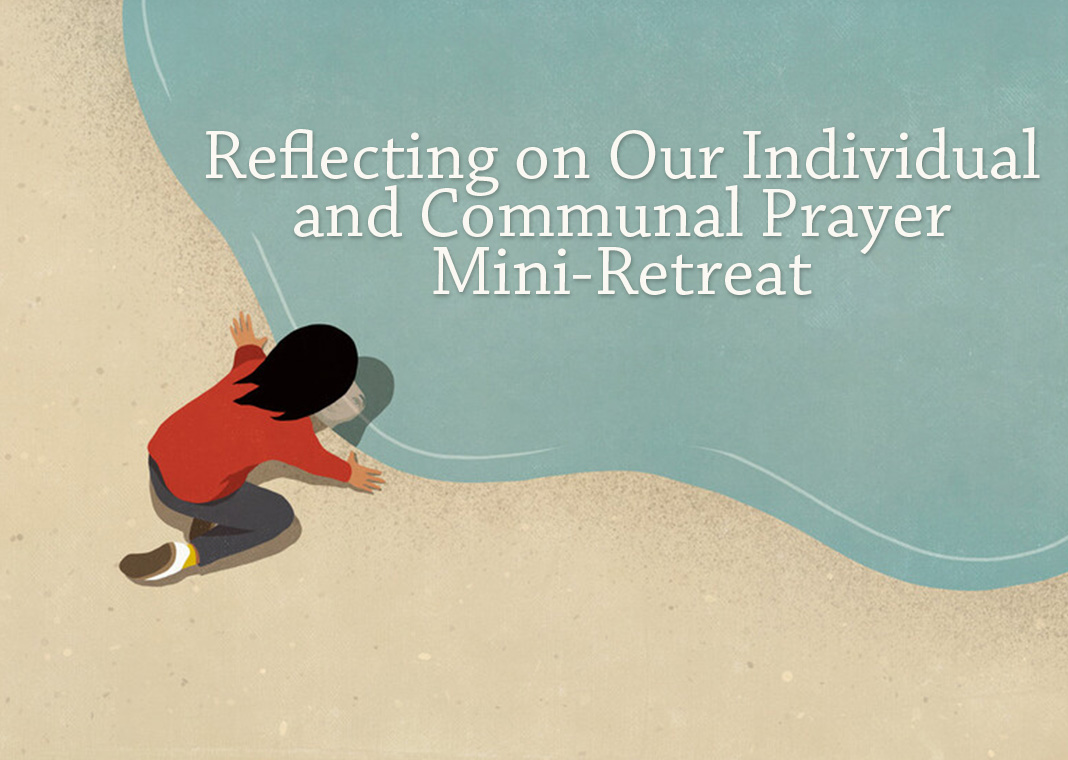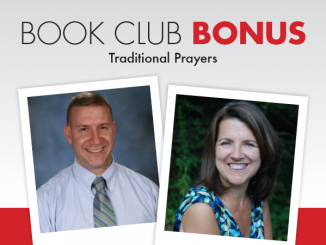
Welcome to part two of our three-part mini-retreat devoted to reflecting on our individual and communal prayer. May your life of prayer be enriched and filled with abundant blessings!
Family Heirlooms
I was born in 1959, right before the Second Vatican Council, so I remember slightly the Latin Mass and the beginnings of my religious formation with the Baltimore Catechism. Of course, the approach employed with the Baltimore Catechism included a fair amount of rote learning, or memorization. Following the Second Vatican Council, the religious formation I received was very different in nature and involved very little rote learning. (While that resulted in a “deficiency” in my formation that I’m going to address, I am not one to bash the catechesis that took place after Vatican II; many wonderful things came out of that period.)
The result was that, like many of my generation, I grew up without the ability to recall things from memory that my older siblings and my parents were capable of recalling. Most of them could rattle off traditional prayers and doctrinal formulas, such as the Mysteries of the Rosary, the Corporal and Spiritual Works of Mercy, the virtues, and the Gifts of the Holy Spirit, with no trouble. Not me.
This became quite evident in the late 1990s, when as a catechetical consultant for the Office for Catechesis of the Archdiocese of Chicago, I visited a parish where a group of 50 or 60 senior citizens was undertaking a study of the newly published Catechism of the Catholic Church. After I introduced myself and told them that I was there to support them and act as a resource, the facilitator thanked me and asked everyone to stand and begin by praying the Memorare.
I couldn’t get off the stage in time. I stood there, lip-synching a prayer I had never been taught to take to heart, or memorize. I felt like less of a Catholic than the rest. I know many people my age and younger who feel the same way.
Traditional prayers are like family heirlooms passed on from one generation to the next. They permit us to join our voices together to pray communally, which is a distinctively Catholic notion. They also provide us with words when we sometimes cannot find words of our own to pray.
Is catechesis all about memorizing? No. However, there is a place in catechesis for taking to heart certain prayers, Scripture passages, and doctrinal formulas so that we can carry with us, in our hearts and minds, the words of our Catholic faith.
Reflection Questions
Choose one of the following questions, and share your thoughts with your fellow retreatants by adding your comments in the comments box below this post.
- What is your favorite traditional Catholic prayer? Why?
- If you memorized prayers and doctrinal formulas as a child, who was responsible for that? Parents? Teachers? Catechists?
- What traditional prayer do you not know by heart that you would like to learn?
- What traditional prayers are you intent on passing on to the next generation?
- What role do you think memorization should play in catechesis?
Prayer
Remember, O most gracious Virgin Mary, that never was it known that anyone who fled to thy protection, implored thy help, or sought thine intercession, was left unaided.
Inspired by this confidence I fly unto thee, O Virgin of virgins, my Mother. To thee do I come, before thee I stand, sinful and sorrowful. O Mother of the Word Incarnate, despise not my petitions, but in thy mercy hear and answer me. Amen.
Additional Reading
- Traditional Catholic Prayers
- Prayers by St. Ignatius and Others
- The Words We Pray
- Loyola Press Books on Prayer
- Practice Makes Catholic: Moving from a Learned Faith to a Lived Faith
CCC References: Appendix of the Compendium of the Catechism of the Catholic Church




Excelente texto e muito corajoso em suas afirmações. Venho de uma família super religiosa e estudei dos sete aos 17 anos de idade, no mesmo colégio católico salesiano em Manaus/AM-Brasil, em que as orações eram (e são ainda) direcionadas à Maria Santíssima. Até hoje com 80 anos lembro de todas as orações!
Similar story here, Joe. I have very good memory, but I can pray without feeling what I say, thus long prayers and repetitive prayers are not for me, with the exception of the Chaplet of Mercy.
So, apart from Our Father,the Glory be, the Hail Mary and the Salve, abd of course the Creed, I love the Angelus. Brief, deep meaningful, perfect.
I teach my children that prayer is about an Encounter with God, we don’t relate to a good father or a friend,with a repetitive number of x words.
We can use the beauty of the many wonderful prayers of different Saints in especial occasions, but regularly we keep it simple.
There are two prayers we pray by heart, apart from the ones above mentioned. The Consecration to the Sacred Heart of Jesus, we pray in the mornings, and the Prayer for the Intercession of St. Gema Galgani, my mum past to us.
A dear Priest told me once, Catholics are not people of Chapter and verse, as other fellow Christians, but people of stories. And those we know well.
I do quite a Christian Meditation and Contemplation.
My favourite practises are Lectio and Visio Divina, and the Laudato SI Contemplative practises. My children have done this too since young.
And I wouldn’t make me to learn more of these.
For me is all about prayer with the heart, not with the mouth.
God bless you immensely
Thank you!
I was born in 1969, and before being born, my mom was already introducing me to my Catholic faith, taking me with her to the daily masses that were being held at 6:30 am here at La Inmaculada Concepcion Parish in Orange Walk Town, Belize Central America. I was able to learn not only the parts of the Mass but most, if not all of the Catholic prayers both in English, Spanish, and some in Latin. I come from a very strong and dedicated Catholic family, going to Mass on Sundays and during the week, attending Church processions during the Liturgical Year, etc;. At present I am an active Lay Minister in my Parish,serving as a teacher of catechesis. For 15 years, I served as an extraordinary minister of the Holy Eucharist at St. John’s College, the only all boys college, in Belize City. In all those years I made sure that my students not only learnt most of the prayers but that they learn to use them in their daily lives. I have also learnt to do Novenas, pray the rosary, the Chaplet of Divine Mercy, etc.
But I must say that there is one prayer that I am unable to learnt to pray, even unable to memorize. That prayer is the Prayer to St Michael the Archangel. I do not know the reason why I am unable to grasp such wonderful prayer.
I do not children but I have nieces and nephews, who I encourage to pray. However, it is to my youngest nephew, 1 year-old, that I want to teach and pass on all that I know about my Catholic faith- prayers included. He has been the only one going with me to Sunday Mass for now.
I believe in the power that prayer has.I have experienced it, and that is why I encourage many people here in my community to pray, but to pray with their heart, not with their mouth; and also to take their time when praying. I believe that prayer is like picking up your cellular phone and giving a call to God.